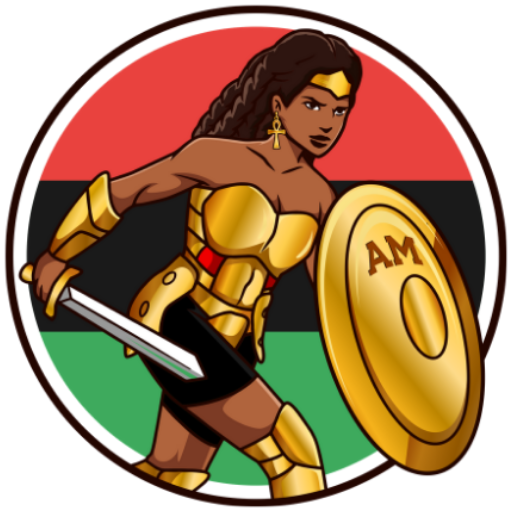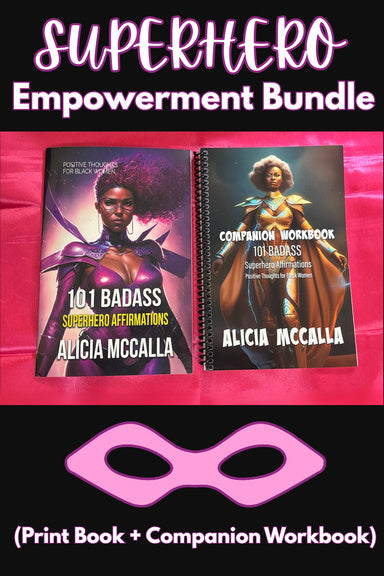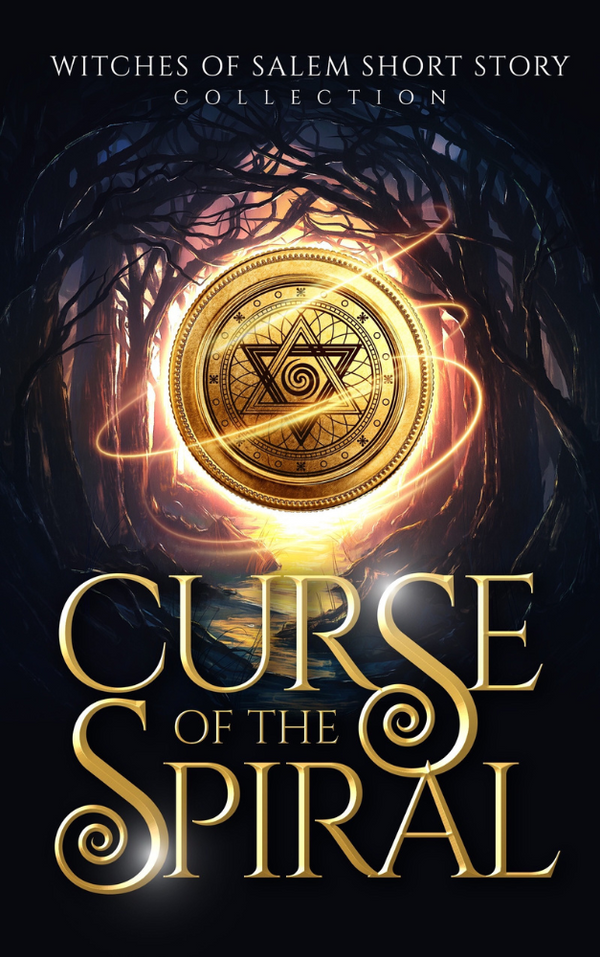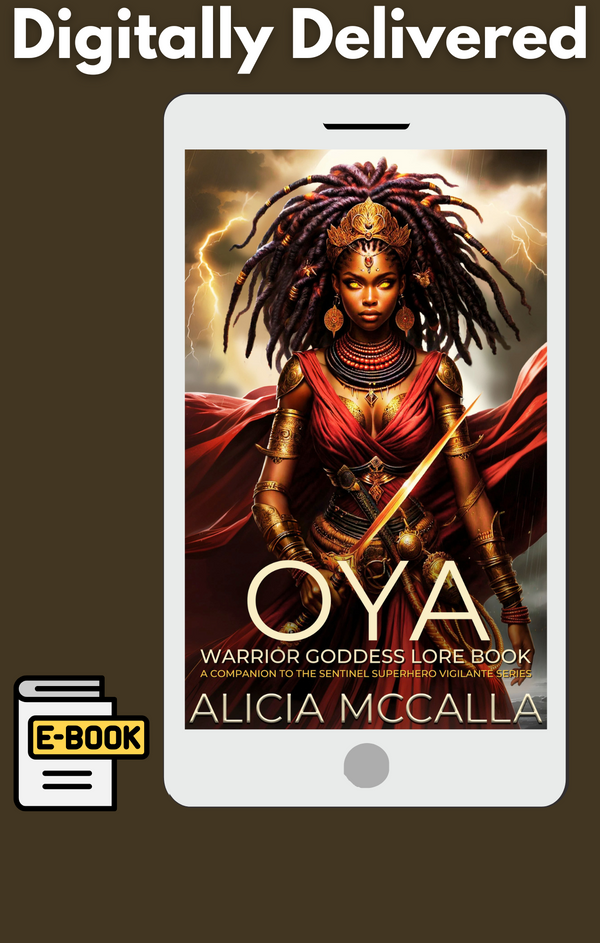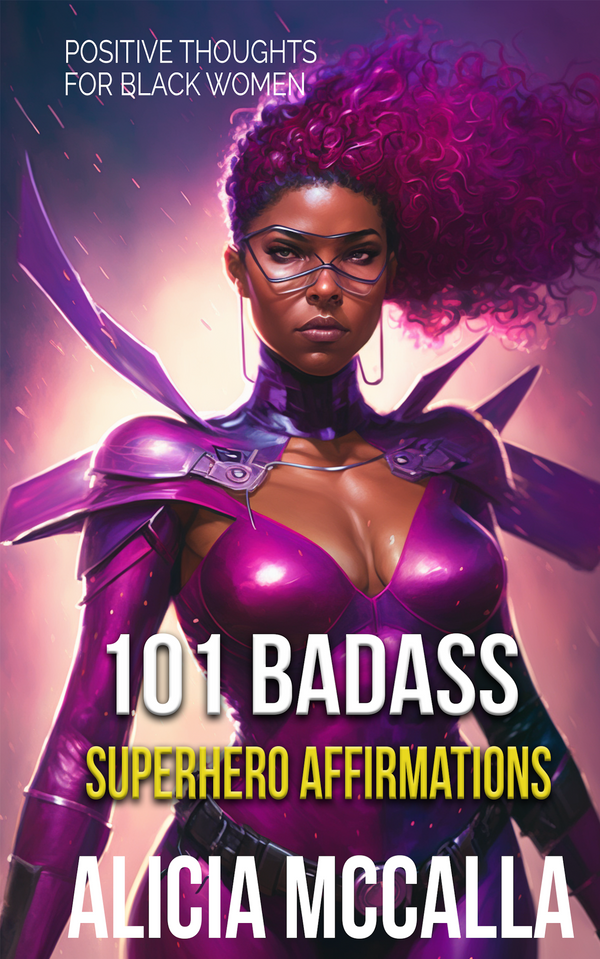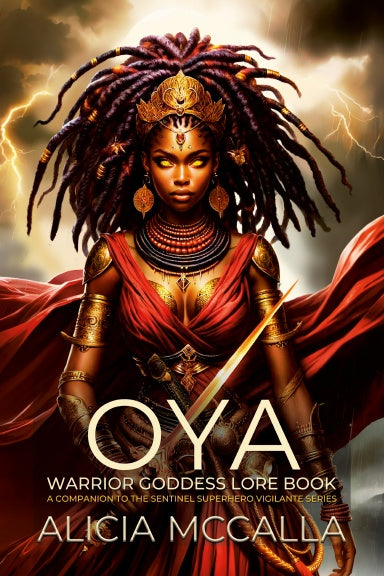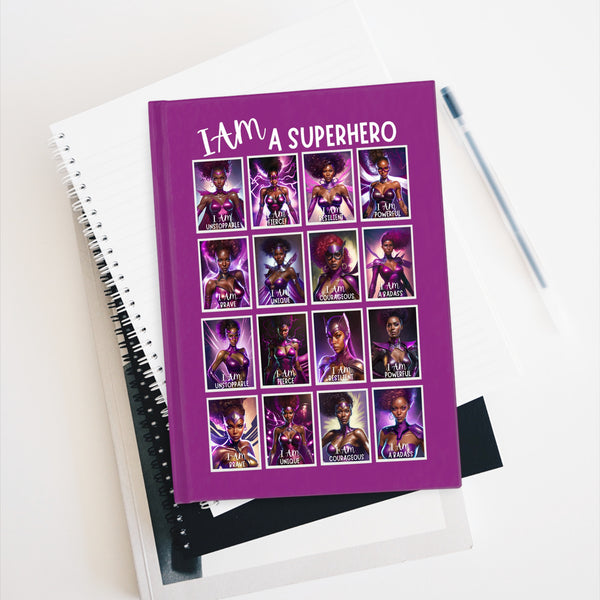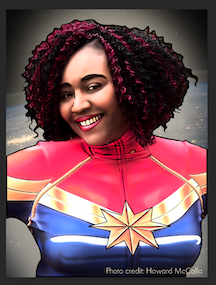
Alicia McCalla's Interview with Jeremy Flagg
Share
Biography
Jeremy Flagg is the author of the CHILDREN OF NOSTRADAMUS dystopian science fiction series and SUBURBAN ZOMBIE HIGH young adult humor/horror series. Taking his love of pop culture and comic books, he focuses on fast paced, action packed novels with complex characters and contemporary themes.
Jeremy spends most of his free time at his desk writing snarky books. When he gets a moment away from writing, he watches too much Netflix and Hulu and reads too many comic books. Jeremy, a Maine native, resides in Clinton, Massachusetts and can be found in local coffee shops pounding away at the keyboard.
Did you enjoy the interview? Feel free to leave a comment and we'll make sure to respond.
Would you like to donate to my cup of tea fund?
If you're not a subscriber, sign-up on the right. Feel free to leave a comment!
Transcript
Alicia: Hey everybody, and welcome to my writing playground. This is episode 4 of the Diverse SciFi and Fantasy Stories podcast. I'm your host, author Alicia McCalla. Thanks for tuning in. This podcast is all about me honoring my son's legacy by sharing my diverse science fiction and fantasy stories with the world. Today, I have the wonderful opportunity to share the works of another author who also writes diverse science fiction and fantasy. Let me tell you about Jeremy Flagg. Jeremy is the author of the CHILDREN OF NOSTRADAMUS dystopian science fiction series and SUBURBAN ZOMBIE HIGH young adult humor and horror series. Taking his love of pop culture and comic books, he focuses on fast-paced, action-packed novels with complex characters and contemporary themes. Jeremy spends most of his free time at his desk writing snarky books. When he gets a moment away from writing, he watches too much Netflix and Hulu and reads too many comic books. Jeremy, a Maine native, resides in Clinton, Massachusetts, and can be found in local coffee shops pounding away at the keyboard.
All right. Hey, welcome Remy. I'm so excited to see you.
Jeremy: I'm so excited to be here.
Alicia: Okay, all right. Do you want to start us off by telling us a little bit about the project that you'd like to share today?
Jeremy: So, I am currently working in a superhero series and it started off as just a four book arc that I wanted to tell. I've been a big superhero fan since I was really young and it's been a great time and I realized when I kind of got to the end of the story that I built up this kind of nifty futuristic universe and I decided I didn't want to leave it and so the series left… it was a very contained story in the United States and I thought, well, there's other events that could be happening around the world. There is a lot different points in the time line that I could work with and I decided, you know what? Let's go for broke and let's make a superhero universe. So this particular book is actually the third book in the quartet and the super heroes… I like to… I'm a little George R. R. Martin when it comes to treating my characters well. They get a lot of bumps and bruises and that's
Alicia: Those are the best stories. [laughing]
Jeremy: And so it was really important for me to have a really diverse cast. My day job is as a high school teacher and so what I wanted to be able to do is in any particular class I wanted to be able to take a cross section of the students and have them represented in my book. So it's a superhero team story and we have a Mexican soldier, a gay artist, a gay… I don't know how you would describe him… kind of a recluse. We have a young girl from Upper East Side, we have a young Muslim woman, and I really wanted these characters to not be diverse for the sake of diversity. I didn't want token people and so each of them, when you start writing they all do kind of feel token because you don't have all these well-fleshed characters out and as I started going to the revision process I was like you know what I'm not doing them the good that I should be and so I started doing a lot of research and started making sure I understood the backgrounds of my characters so that I could more appropriately represent them. And the shining moment of it was I have a young girl who is Muslim and my knowledge of Muslim culture is very limited and it's just not something that I'm around very much. I don't have any Muslim friends and I decided I wanted her in there and when I originally wrote her I referred to her hijab as a head scarf and I came back around when I was editing and I looked down and I said, no.
Alicia: Yeah, no, mm-hmmm.
Jeremy: So I decided she was gonna be hijab and I don't care who likes or dislikes the fact that I have a Muslim main character. And it wasn't enough for me to just say that she looked a certain way. I started researching women in hijab culture and it's fascinating. I think you know for me as a human, I feel much more in touch with a broader universe and at the same time my character is much, much richer for it. And this particular scene highlights one of my characters kind of admiring her. He's an artist. He's drawing and using her as kind of a model and he in a way is me kind of learning her at the same time. And so as it was discovery process for me it was also discovery process for him. Which yeah we are our characters essentially.
Alicia: I think so. [laughter] That's fascinating. So tell me, why do you think that you're the person to tell this story or write this particular series? What makes your stories unique?
Jeremy: I always come back and it's been altered and adapted for whatever situation, but I wanted to write a story that I wanted to read when I was a kid. And I remember reading X-Men when I was younger and the whole point of X-Men is they do the right thing despite the fact the world hates and fears them. And it's the opening line every X-Men comic and the X-Men went through a civil rights movement where there were a lot of people color on the team and then later on they even went through an LGBT movement and their struggle has kind of reflected these movements as the world's gone along. And so when I came across this, and I wanted to write this book I wanted to write a character—and my main character's gay—it's only loosely mentioned in the first book because truth be told it's not that important to his story, and it's not until he gets into kind of a pseudo-relationship thing that it really gets explored because I didn't want a coming out story. I myself came out when I was very young. I didn't need a coming out story. So this is more for the LGBT community who doesn't want every story to be about their sexual awakening, or they're coming out of the closet. So this is just characters who simply are gay. That's kind of how I lead my life. I no longer think about when I mention my boyfriend, oh, I'm saying that I just came out of the closet to someone. It's just it's a fact.
Alicia: Yeah. I get you, yeah. I think so. I don't walk around saying that about my husband. [laughing] Not necessary.
Jeremy: Yeah. And don't get me wrong. Those stories are still extremely important. Young LGBT people still really need those stories of learning to accept themselves and dealing with the world around them. This just wasn't meant to be that particular story. I'm actually working on a comic book with an artist friend of mine and that is actually a coming out story and it's very learning to come to grips when no one else accepts you. So those stories are still extremely important. This is kind of meant for the person who just has been there, done that.
Alicia: Yes. Okay, so is that sort of your reason or your inspiration behind writing this? Or do you have another one?
Jeremy: One, I just… I just love superheroes, but it also it was just kind of a you know the main character is kind of this big clunky… He's not gonna be the shirtless man on the cover. It's just not who he is. He is truly just an average person and if you look at comics, comics don't represent the average person in any way, shape, or form. If no one has hips like that. I mean, I may be concerned they were. So, I wanted something that was a lot more accessible to real people and so my heroes don't wear spandex and—don't get me wrong, I love a good spandex story—but my characters are just average people who were in this bad situation. And for whatever motivation—and not always good motivation—they're gonna do the right thing, sometimes selfish, sometimes for survival, and sometimes because you know they're moral compass points north. And I think that that's a little more realistic than you know this team of superheroes just goes and does good because that's the mission statement when they formed.
Alicia: [laughing] Right? Like Magneto sometimes it's you know talking about Professor X being Martin Luther King, Jr. and Magneto being Malcom X. I mean you kinda like them both for different reasons.
Jeremy: I really like Magneto as a character because, does he do bad things? Absolutely. Does he do them for a good reason? Yes. And when
Alicia: You kinda want him to do some of those bad things, right?
Jeremy: You almost feel justified like he's been through all this trauma and we sympathize with him and I think that that's really important and so my main character is just thrust into this world and through bad situations he kind of steps up to the plate and he doesn't know how to step up to the plate and so he has to figure that out. And then there's other characters who… there's a human woman who actually… she's sentenced to death for killing her husband—also for good reason—and by the end of the story she's kind of risen to power both literally and figuratively. And overcomes this echo a woman she used to be and I just love those stories of growth. I think having real people means you get real growth.
Alicia: So is that a theme that you are imparting to your readers or do you have some other things that you work with?
Jeremy: Yes. I would probably say my two biggest themes are personal growth and kind of overcoming the bad hand you're dealt. This character, her name is Twenty-Seven. It's been branded on her arm when she's kind of sentenced to die and through a series of events find herself in kind of a nuclear wasteland, trying to survive, and she gets wrapped up in some of the stuff. Her story started as an adjacent and she was supposed to die in the first book. But her determination to survive and to reinvent herself into this stronger woman that she, at the beginning thinks maybe exists, and by the end you see her step into her power and assume a role she does not want because she's the only person with that strength. So that's a big theme. And my other theme is discussing what it means to be human. The military in my book are very, very, heavily cybernetically enhanced and one of the military people is a superpowered person. Everyone treats her less than and constantly is referring to her lack of humanity and despite being one of the best soldiers, she watches all of these people get their limbs severed or have ocular implants or brain implants and all the stuff to be better. And she watches them sell away their humanity and at the same time it's something that she doesn't have to give or she doesn't believe she has to give because she's not human. So it's a very kind of heart wrenching story as some of the powered people befriend humans to explore this idea of what it means to be human and are we even human. And later on, they start to get worshipped as kind of a cult situation, and they're being treated as gods and they're like, No we're just trying to be human. We don't want to be more than that, and so I like playing with that idea of humanity. And I think it's important because you know we, as individuals, constantly feel like am I being the best me I can be? Am I embracing my humanity and inviting in the rest of the world? Am I being that warm, caring individual or am I cutting myself off? You know, currently in the world, we're very cut off from the world, so I think I really like this idea of humanity and what does that mean to each individual?
Alicia: Right. So is that one of your… is that something that you've personally experienced or something that just fascinates you?
Jeremy: I think… so, I came out of the closet when I was fourteen and I lived in a very rural area of Maine where… we were is WASP-y as WASP-y gets where I come from. And it was all White Anglo Saxon Protestants and when I say that it's not me generalizing that's truly… even our Catholics had to go to another town to worship because we wouldn't have a Catholic Church in our town. It is extremely bigoted where I grew up, so when I came out of the closet I was a target for not so much bullying, because I was a big kid and no one messed with me, but people definitely looked at you differently and you became the other. And so, I've been dealing with that and trying to remind yourself that you're still the same person you were before this secret got out is definitely something I personally embrace. And as a teacher, watching my kids deal with it, there's always this feel, I'm different. For whatever reason, and I don't think… I think every person at some point time feels that, no matter how part of the norm or average you are. Something about us sets us off and we start to feel that "otherness" creep in. So I think that that's kind of an important reason why I came to this. And you know, with my students, I get to see this first hand so a lot of that filters into my books in, you know, what they deal with.
Alicia: Mm-hmm. That's something. Okay, so what do you want to tell potential readers about the diversity within your stories? I think you sort of alluded to some of that, but you can let us know: why should they give your diverse stories a shot?
Jeremy: I think for mine, I'm a very matter of fact person. There's no B. S. from me. There's no sugar coating it. And I think that that's one of the things when I first wrote this, I was so concerned with what will that you know bigot from where ever think about this particular character, or what will someone think about I have a person of color's point of view? I really was concerned with that on my first draft. And at some point I realized my personal voice was I just don't care. And once I kind of embraced you know who I am as a person, I was able to walk into this and just say screw it. I don't care about the readers in this regard. Will I get bad reviews? Sure. Who cares? This is the story I want to tell and there is definitely a population out there that likes that not presenting things as an origin story or delivering it in any educational manner and I don't. I never speak down to my reader. Here are your facts, here is the reality of the world, and if you walked into any coffee shop in you know civilized world, you'll see this cross section of people and there's no point in having them introduce themselves as their differences. They just are. And some of my characters are apprehensive about it. I didn't want everyone to accept everyone with, you know, open arms because that's not the real world.
Alicia: You mean like the Star Trek world?
Jeremy: And don't get me wrong, I love the idea of that utopia and I you know would love for us to get there, but there is adversity and I definitely address the adversity. There's no point in beating around the bush, so once I realized like I'm a straight-forward, just here it is type of person, it got a lot better and that's how I deliver my stories. Like, here are the facts, you can either roll them or leave me a one star on Amazon.
Alicia: Don't be telling people to leave you a one-star on Amazon. There's enough of that already. But I do think you're right. As writers, we have to embrace that which we do and tell the story that we need to tell and not necessarily worry so much about what a reader might think or do about it. But I mean, if they're engrossed in the story or if they're into the story, then the characters are alive for them anyway, you know, and then they get it.
Jeremy: Yeah, and I think with my gay characters the first edition of the book was sanitized because my publisher sanitized some stuff out and I didn't like that. And so when I got my rights back I was able to do what I wanted and the general populace was introduced to gay characters through things like Will & Grace, and Will is this over-the-top flamboyant man, and they exist. There's plenty of flamboyant gay men, but there's also a very large chunk of gay men who are, you know, that every day, average Joe that you wouldn't know. And so I wanted to make sure that that broad range of diversity got represented. It's not safe. It's not the harmlessness of Will & Grace, but the same time my story is not an up in your face when there is a gay sex scene that comes up—I fade to black in my sex scenes anyway so it's not… nothing too graphic—but it's a passion, here's a fact, let's move on. Fade to black, use your imagination, let's move on. And there's no reason to you know hide that stuff and I think it's great learning about the stuff. I have a character in my serial that I'm working on. I release every week on my website, and she's a young black woman living in Chicago and I am neither young, black, or a woman—
Alicia: [laughing] What? [laughing]
Jeremy: I know. Shocker. So I had to do research, and one of the things I find fascinating is hair culture for black women. You can't just simply discuss hair. There a world around it, and I mean it's fascinating. Is it making me a better person? I don't know, but I love knowing this stuff, so…
Alicia: I think you got to get that deep into your characters, though. I mean if you're writing, you either need to have someone that you know in mind, or you need to have some kind of experience there, and if you don't, it will show in your writing.
Jeremy: And I want a young black woman to read that be like, girl I know what your problems are. I'm with you.
Alicia: [laughing] Okay so you told us a little bit about the person I think you're gonna read about today, but can you tell us what's at stake for her?
Jeremy: Okay, so this scene is between two characters and in the last book my superhero's trying to stop a rogue organization from taking over the White House, basically. And the White House… the president got assassinated—which isn't a horrible thing because she was a horrible human being—so it ends on a… we failed. Literally everything that we set out to do just went sideways and so they've been hunted and they're currently in hiding right now. And this scene is actually kind of a breather scene between some action and its between Conthan, my kind of my lead protagonist, and a young woman, Alyssa, who is my kind of youthful, sage-ish type character. And he's an artist, so she is currently practicing the Salah while he's drawing her. And so this is kind of a breather scene for the two of them because as far as I'm concerned when the story started they were the two most different characters and so I really like putting them in scenes together because their differences kind of get to shine. So this is kind of a breather scene so low action.
Alicia: All right. So, you want to get started?
Jeremy: Sure.
Alicia: Okay go for it.
Jeremy:
A board with a sheet of paper covered in black dust and dark lines rested in his lap. A black line crossed through the center of the sketch, a slip of his hand. The static, stiff representation of his model’s clothes had been his last thought. Now, Alyssa knelt in front of his makeshift studio. She snapped her fingers, bringing him back to reality.
“I’m fine,” he said. “I think. I had a weird feeling I couldn’t shake, that’s all.”
“Weird feeling?” she asked.
Her hijab remained firmly locked in place, framing the soft features of her near flawless skin. Despite the fabric covering the majority of her head, there remained a subtle sensuality about her face. Stealing a glance at his charcoal drawing, he found himself annoyed that he hadn’t captured that element, something mirrored in the woman herself.
“Yeah.” Conthan shrugged, tore the sheet of paper from the board, and tossed it on the floor. The next blank page in his sketchbook left him feeling rejuvenated. “What do you think about all of this? I mean…”
Alyssa walked back to her prayer rug and rolled it up slowly. Her brow remained furrowed and her lips puckered, as if she might speak at any moment. In the last year, when they weren’t fighting for their lives, he had discovered her quiet demeanor wasn’t from a lack of depth.
The living room had finished floors, but superheroes didn’t concern themselves with furnishings. A mattress sat against one wall, his backup sleeping space when Dwayne’s abilities made it impossible to share a bed. Other than a few chairs, the massive room remained empty. The kitchen, however, always seemed to be crowded with dishes, cookware, and somebody preparing food. Meals were the one thing they treated with some amount of normalcy.
Alyssa treated the sparse space as her own. In another life, Conthan had spent his time doodling Sarah, his best friend in high school, a girl with bone growing through her skin. In what others might call disturbing or even ugly, Conthan found a curiosity and that held beauty. Even as an atheist, Conthan marveled at Alyssa’s dedication to her faith, sparking that curiosity once more. Dozens of drawings littered the floor, each of them showing Alyssa in a different pose while she performed the Salah.
“I have made peace with this life. I am not saying I don’t want something different, but I am content with what my life has become.” At the end of the Salah, she started to perform a beautiful dance of martial arts.
“What would you rather be doing?”
Gracefully, each movement she performed flowed into the next. Conthan started sketching on the page, broad strokes laying down a coat of charcoal. He imagined her muscles were strained from the slow pace. He recognized her Tai Chi, but found her perfection of the form to be uncanny.
“I would be doing the ballet right now. I would be performing internationally. My interpretation of Swan Lake would have been stunning.”
“A dancer?” Smiling at the thought, he agreed with her. “You would’ve put on a spectacular show.”
“I would have done it for a while. Then I would retire from dancing and open my own studio. There was a man I once watched as he taught karate to young children. I found it quite admirable, his need to improve the lives of these young kids who had nothing.”
She paused between snapping her arm forward and pivoting her left leg. Having watched her perform the routine a hundred times, he suspected he could predict each of her moves if necessary.
With her heels nearly touching, she slowly bent at the knees, raising her arms in an equally graceful manner. His jaw went slack as she stood and raised her leg to a point where her heel nearly touched the back of her head. The transition from martial arts to dance struck him as a beautiful summary of Alyssa.
A week ago, Alyssa used the momentum of a charging synthetic to hurl it into a wall. Now, those same powerful limbs hung delicately in front of her as she spun in circles. Each spin gave him the opportunity to expand on the developing drawing in his lap.
Only as she bowed down at the waist, appearing to power down, did he realize she hadn’t needed a video for reference. “You were a dancer?”
“Don’t sound surprised. You were an artist.”
“Were?” He eyed his board. The swift strokes of the charcoal left sweeping gestures. Blowing off the excess dust, he spun it around to show her. “Present tense there, little miss perfect.”
“Not bad,” she said. “Want me to show you how it’s done?”
Arm circled around the board, hugging the portable platform, he pulled his face away. “Thirty seconds and you’d be mastering the use of light from reflected surfaces like you were Rembrandt.”
Though her leggings and tunic hid her form, he knew without a doubt she had more muscle than he could imagine. With little effort, she lifted herself onto the tips of her toes. Conthan’s eyes went wide. “How did you just do that?”
“The dancing?”
He nodded. “And the T’ai Chi? You did them both without watching something.”
“I received a full scholarship to Juilliard. I practiced every day. Despite being nearly perfect in every way, I always pushed myself. Unlike wielding swords or shooting a gun, my muscles never forget this.”
“I got a scholarship too. I wasn’t that good, but apparently somebody with authority thought I had potential. My foster mom used to say that to me. I had so much potential.”
In the year they had been together, fighting side by side, she never once referred to life before the Outlands. Each of them held pain from a life they left behind. The unsaid rule had always been never to ask questions about what they left behind. Conthan found it difficult to start hearing about it now, but he bit his tongue, instead letting Alyssa speak as she felt comfortable.
“My father was a proud man who believed in the old ways. He had an internal struggle. He wanted the world for me, but he clung to traditions that didn’t translate in the new world.” Alyssa plopped down in a camp chair, putting her feet up on a milk crate. “One night I woke up and went for a glass of water. I passed his office and caught him watching my submission video for Juilliard. He was crying.”
“He was proud?”
She nodded. “I believe so, or at least I choose to believe. My mother, on the other hand, she was a fierce woman. Where Father was tempered, she was the fire. They were the perfect couple. They fought about ethics, about this world we were creating, but at the end of it, they held hands.”
“Did they suspect you were a Child?”
Dwayne left his home, and Gretchen was forced to hide her abilities. Being a Child came at a price. While he wished he and his foster mom had been closer, there was a bit of relief in knowing they wouldn’t need to have this awkward conversation.
“They knew. They discovered it the first time a piano instructor visited our home. It only took minutes before I mastered the instrument. My parents waited till I went to sleep to talk about my abilities, but I snuck into the hallway to listen. Never did they shun me. Their discussion was about protecting me from the outside world. They wanted a normal life for their only daughter.”
She raised her eyebrows at the last statement. Conthan chuckled at her ability to lighten the mood. “I think we should call ourselves the Orphans of Nostradamus,” she said with a laugh.
Conthan raised his hands in the air. “Preach it woman.”
Alicia: Well that was neat. [laughing] I liked it.
Jeremy: For all the… like, my stories are definitely action intense and very rarely are there down moments because I… my particular writing style is I like to write in a very abbreviated timeline, so most of my books take place over three or four days.
Alicia: Mm-hmmm.
Jeremy: So there's not a lot of room for sweet tender moments. And so…
Alicia: That was a tender moment, yeah.
Jeremy: You got to make sure that they go in there because you want to remind people why they're fighting for what they're fighting for.
Alicia: Yeah. So are you ready to tell readers where they can find your work?
Jeremy: Yes I am! the more interesting website is to check out ChildrenOfNostradamus.com. My ongoing serial is happening there, timelines about the books and some sneak peeks behind the scenes are happening there. Eventually, I'm going to try and turn my world into an RPG so it's starting to take form.
Alicia: Okay. Is that that the only place you want them to visit?
Jeremy: You can find my boring author site is RemyFlagg.com. It looks like every other author website it's just 'here are the books.'
Alicia: But it's your home. [laughing]
Jeremy: Yeah. I'm not gonna lie. Author websites tend to be kind of wah-wah. Which is why I made the other one. It's a little more fun and dynamic.
Alicia: I got you. All right. Well I also love to hear what readers think about Jeremy's stories. Feel free to post a comment on my blog. Either me or Jeremy will respond. Okay guys, I'm author Alicia McCalla, and I write science fiction and fantasy stories for readers who want diverse protagonists and unique storylines. If you enjoyed this episode and want to support me or donate to my Cup of Tea fund, just head on over to my blog on my website, find this post and click on the donate button at the bottom. If you're not one of my subscribers and want to join my League of Heroes, go to www.AliciaMcCalla.com to sign up for my newsletter. There, you can learn about my latest project and purchase diverse sci-fi and fantasy stories. And if you're already one of my subscribers thank you so much and please feel free to share this podcast with anyone you might enjoy it. Okay I just wanted to say Wakanda Forever and thanks for listening!
